Innovative journalism and advocacy projects
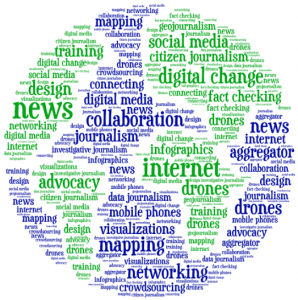 The rapid rise of mobile phones, the Internet and above all, social media is making it easy for even small media organizations and advocacy groups to create journalism networks or develop innovative digital projects that have an impact. From documenting the disappearance of trees in the Amazon rainforest to giving a voice to the illiterate in India or connecting journalists covering Colombia’s conflict, onMedia gives you a snapshot of interesting projects from around the world.
The rapid rise of mobile phones, the Internet and above all, social media is making it easy for even small media organizations and advocacy groups to create journalism networks or develop innovative digital projects that have an impact. From documenting the disappearance of trees in the Amazon rainforest to giving a voice to the illiterate in India or connecting journalists covering Colombia’s conflict, onMedia gives you a snapshot of interesting projects from around the world.
Visualizing Palestine, Palestinian Territories (in English and Arabic)
Infographics, visualizations, data journalism, design
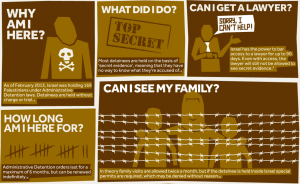
Part of the “Guide to Administrative Detention” poster
Visualizing Palestine uses beautifully designed infographics to tell stories about Palestinians and the Palestinian territories. It covers topics usually absent from the discussions about the Israeli-Palestinian conflict, such as detailing the lack of access to medical care in Lebanon, or showing the school enrollment rates of Palestinian refugee children who have fled Syria for neighboring countries. Each infographic is accompanied by a list of sources. The site makes the complex data behind the infographics understandable and publishes its visualizations under a creative commons license so they can be used by other media.
“You don’t remember numbers or statistics. You remember stories. We create the visualizations so people can use them as tools to advocate for something.” Ramzi Jaber, co-founder of Visualizing Palestine in an interview with DW
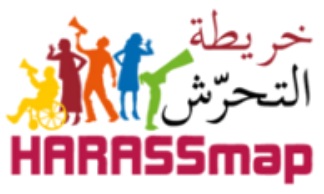 HarassMap, Egypt (in Arabic and English)
HarassMap, Egypt (in Arabic and English)
Mapping, social media, crowdsourcing, social research, mobile technology
HarassMap was set up in response to the high rates of sexual assault in Egypt. Launched in 2010, it allows people to anonymously report when and where they were victims of sexual harassment. They can do this by calling, texting, emailing or tweeting. Incidents are then documented on an online map, based on the open-source Ushahidi mapping software. The idea is to use crowdsourcing to better understand sexual harassment in Egypt, where there is little research on the subject. HarassMap is a volunteer-based, independent initiative. You can read more about the project on DW.
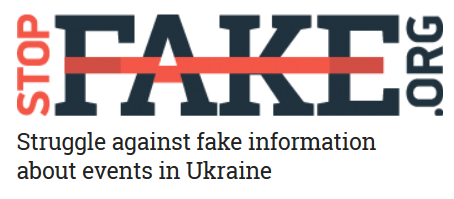 Stop Fake, Ukraine (in English and Russian)
Stop Fake, Ukraine (in English and Russian)
Fact checking, citizen journalism, social media
Run by a small group of current and former students from the Mohyla School of Journalism in the Ukrainian capital, Kiev, StopFake curates and refutes false claims spread by Russian media about the conflict in Ukraine. The fake-busting site has proved hugely popular since it started in March 2014. In its first few weeks of operation, it had 1.5 million visitors and some of the weekly video round-ups detailing the fakes have more than 100,000 views on YouTube. Many of its reports make the rounds on social media.
“We do the same things as anyone else would do – find the truth, check the facts, talk to people, and these are universal ways to improve journalism in any country.” Co-founder Yevhen Fedchenko in an interview with onMedia
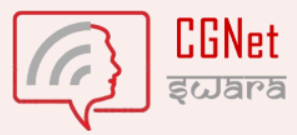 CGNet Swara, India
CGNet Swara, India
Citizen journalism, mobile technology
CG Net Swara allows people to ring up and leave a voice message about something important to them, or listen to the stories of other users. The service is most commonly used to air grievances, such as the non-payment of wages, or to pass on local news. Selected recordings are checked by journalists and published on the site, as are text summaries. Some issues are also passed onto contacts in the mainstream media. The idea is for CG Net Swara to act as a citizen journalist’s forum in India’s impoverished Chhattisgarh state, where there is a shortage of media services in local tribal languages.
“Our primary goal and area of operation is media dark zones. There are 100 million people living in central tribal India and they have no voice.” Founder Shubhranshu Choudhary in an interview with the Doha Center for Media Freedom
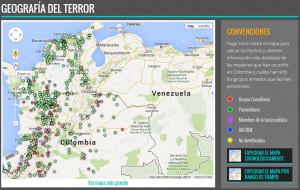 Rutas del Conflicto, Columbia (in Spanish)
Rutas del Conflicto, Columbia (in Spanish)
Database, mapping, crowdsourcing, mobile technology
The Routes of Conflict project tracks massacres and violence that have taken place in Columbia since 1982. Users can search the online database according to victims’ names, locations or armed groups. The resulting map shows how many people were killed in each incident, who the victims were, who was responsible for the killings and also provides links to relevant documents. The information is also available via a mobile app.
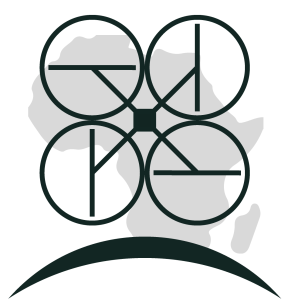
African SkyCam, Kenya
Drone journalism
African SkyCam is a group of journalists who want to show newsrooms that there is a cost effective way of capturing aerial footage to give African audiences new and independent perspectives on a story. Because African media organizations usually don’t have their own helicopters, they have to rely on hitching lifts with police or military to get certain shots. Drones are a way of being more independent.
“With an eye in the sky, African journalists can tell stories that might have been impossible without access to aerial footage.” Founder Dickens Onditi Olewe in an interview with onMedia
Khabar Lahariya, India (in English as well as several other languages local to India)
Citizen journalism, newspaper collective
Khabar Lahariya is a small weekly newspaper published in several local languages by a group of marginalized rural women in Uttar Pradesh and Bihar states. The idea behind the eight-page paper is to spread and promote information about life in rural areas – covering everything from reported rape to a house fire in a local village. Founded in 2002, the paper now has 40 women journalists and a print run of around 6,000. It’s estimated a single copy of the paper is read by ten or more people. The collective launched an online site in 2013.
“We expose problems and we follow up on the solutions.” Reporter Meera Devi in an interview with The Hindu
 CONNECTAS (in Spanish, Portuguese and English)
CONNECTAS (in Spanish, Portuguese and English)
Networking, investigative journalism
CONNECTAS is a non-profit journalism project for Latin America with the aim of promoting transnational investigative journalism and training.
“The media in Latin America have focused excessively on what happens in the countries’ capital cities, and report very little about what is going on countrywide, much less what is happening around the continent.” CONNECTAS founder Carlos Eduardo Huertas in an article published by the Nieman Foundation
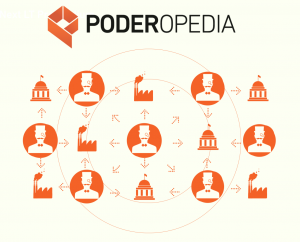 Poderopedia (in Spanish)
Poderopedia (in Spanish)
Database, visualizations, fact checking
Poderopedia provides a verified source of information on influential politicians and business people, such as who their family members are, where they went to school and university, and who they have worked for in the past. It also visualizes the relationships between the people and the organizations in its data base, revealing networks of influence. The platform first started in Chile, where business and politics are closely connected, and has subsequently expanded to Venezuela and Colombia.
“We consider Poderopedia, in its call for transparency and dissemination of data, to be a mechanism against the lack of transparency that currently, above all, characterizes Venezuelan institutions, both private and public.” Marianela Balbi, director of Venezuela’s Press and Society Institute.
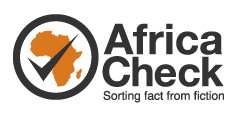 Africa Check (in English)
Africa Check (in English)
Fact checking
Africa Check aims to sort fact from fiction on a variety of African topics, such as the real population of Nigeria or claims that cancer causes more deaths than AIDS on the continent. Founded in June 2012, the project runs in a partnership with the journalism department of the University of the Witwatersrand in Johannesburg. It has 50,000 to 60,000 unique visitors each month. It also has a slew of resources for journalists on its site about how to fact check properly. Read more about the project on onMedia.
“There is a huge increase in the flow of information and also of misinformation One of the things we are concerned about is giving journalists tools to verify this information.” Africa Check founder Peter Cunliffe-Jones
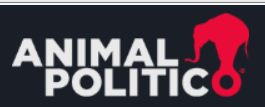 Animal Político, Mexico (in Spanish)
Animal Político, Mexico (in Spanish)
Digital media, social media
Animal Político is an online news site devoted to Mexican politics that is especially popular with young readers. It attracts more than three million visitors per month and has nearly a million likes on Facebook – numbers that continue to grow rapidly. The site started off as a Twitter news service in 2009 and since its inception, the founders have emphasized the use of social media to attract readers. Interestingly, it’s a freestanding digital media organization – which means it’s not supported by grants and foundations, or by another media institution.
“We don’t care that the (Mexican) president went to Querétaro or Michoacán today and gave a speech….We actually care a lot more about … the social impact that policies have on people, the civic organizations working to better the country, and about human rights violations.” Founder Daniel Eilemberg in an interview with WLRN
Chicas Poderosas, Latin America (in English and Spanish)
Data journalism, networking
Chicas Poderosas is a network and training model to encourage female journalists in Latin America to embrace digital technologies and data journalism. It’s about building a diverse digital network of digital journalists.
“At Chicas we help journalists learn technology and we connect them with mentors, developers and designers so they can keep learning.” Founder Mariana Santos in an interview with the Knight Foundation
InfoAmazonia, Brazil (in English, Spanish and Portugese)
Mapping, database, geojournalism, citizen journalism, news aggregator
The project tracks forest loss and other environmental issues, such as bush fires, in the Amazon basin and displays this information in interactive maps. To do this it, InfoAmazonia uses a combination of satellite and other data as well as citizen reporting from the nine countries of the Amazon region. It also aggregates news stories about the Amazon.
“The ultimate goal is that displaying this information with such impacting visuals will help to elevate the debate on public policy in this region to another level.” Gustavo Faleiros, founder of Infoamazonia in an interview with Visualloop.com
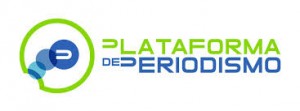 Plataforma de Periodismo (in Spanish)
Plataforma de Periodismo (in Spanish)
Networking
Plataforma de Periodismo aims to improve the coverage of conflict and post-conflict Columbia and create a network of journalists who cover these issues. The website is set up as a training space, with resources, case studies and digital tools.
“We saw the need to create a digital space to train, inform, and reflect on these topics,” said project coordinator Edilma Prada Céspedes in an interview with the Knight Center for Journalism in the Americas.
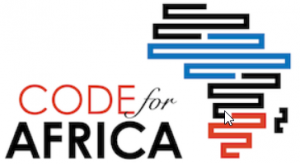
Code for Africa
Data journalism, networking
The Code for Africa initiative aims to nurture the skills necessary for people to find, access and use data in order to promote more transparency. There are already country chapters in Ghana, Kenya, Nigeria and South Africa and plans for several other countries to follow.
Compiled by Holger Hank, Peter Deselaers, Guy Degen and Steffen Leidel, edited by Kate Hairsine



